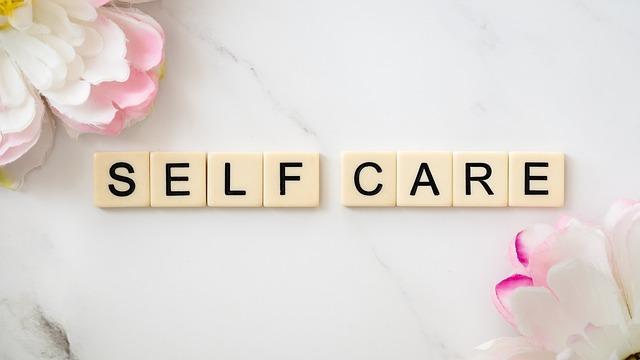In a fast-paced world where responsibilities often take precedence over personal well-being, the importance of self-care can easily be overshadowed. It’s not uncommon to see friends, family, or colleagues neglecting their own needs in favor of meeting the demands of their daily lives. As caring individuals, we might feel compelled to step in and remind them of the significance of prioritizing their health and happiness. However, communicating this concern in a supportive and constructive manner can be a delicate task. How do you convey the message that taking care of oneself is not selfish, but rather an essential part of living a balanced and fulfilling life? This article aims to explore effective and compassionate ways to encourage the people in your life to embrace self-care practices, fostering a culture of well-being that benefits everyone involved.
Understanding the Importance of Self-Care in Relationships
In any healthy relationship, prioritizing self-care is fundamental yet often overlooked. Engaging in self-care not only nurtures individual well-being but also enhances the connections we share with others. When we take the time to focus on ourselves, we cultivate emotional resilience and become more attuned to our partners’ needs. This reciprocal nurturing fosters stronger communication and a deeper sense of understanding. A partnership thrives when both individuals recognize the importance of tending to their emotional and physical health, allowing them to bring their best selves to the relationship.
Moreover, self-care practices can mitigate common relationship challenges such as stress and miscommunication. By establishing a routine that includes personal time, partners can recharge their mental health and gain clarity on their emotions. This can lead to more balanced interactions and less reactive behavior during conflicts. Encouraging your loved one to engage in activities that promote their well-being—such as exercise, hobbies, or mindfulness—can strengthen the bond you share and create an atmosphere of mutual support and growth, which is essential for a thriving relationship.
Recognizing the Signs That Someone Needs Self-Care
It can sometimes be challenging to identify when a loved one is in need of a little self-care. However, there are several key indicators that may hint at their emotional or mental exhaustion. Changes in behavior such as increased irritability, withdrawal from social activities, or a lack of enthusiasm for previously enjoyed hobbies often signal that someone is feeling overwhelmed. Additionally, physical signs such as fatigue, neglecting personal hygiene, or a noticeable change in eating or sleeping patterns could be red flags that the person is not taking care of themselves as they should.
Another aspect to consider is communication patterns. If someone is frequently expressing feelings of being overwhelmed, anxious, or hopeless, it’s crucial to take their words seriously. Look for changes in their interactions—are they more short-tempered or indifferent during conversations? Do they seem distracted or disengaged? These shifts can indicate a pressing need for self-care. Encouraging them to take a break or engage in enjoyable activities can be beneficial, gently reminding them that prioritizing their own well-being is essential for their overall health and happiness.
Choosing the Right Time and Place to Communicate Your Concerns
Finding the appropriate moment to discuss someone’s well-being can significantly influence how your message is received. It is essential to consider their current state of mind and emotional readiness. Take note of their surroundings and the pressures they may be facing; for instance, engaging in a casual conversation during a stressful workday might not be as effective. Instead, aim for a setting where they feel comfortable and receptive, such as over coffee or during a break. By choosing a conducive environment, you allow space for openness and reflection.
Additionally, timing plays a vital role in ensuring your message resonates. Consider moments when your friend or loved one is likely to be more relaxed or reflective, such as after a significant life event or when they seem to need support. When you do initiate the conversation, express your concerns gently, emphasizing your care and support. Utilizing soft languages, such as “I’ve noticed you’ve been a bit overwhelmed lately,” can lead to a more meaningful dialog. This approach not only shows that you value their feelings but also encourages them to prioritize their health without feeling pressured.
Using Empathy to Approach the Conversation
When approaching someone about the importance of self-care, it’s crucial to create a space where they feel seen and understood. Begin by acknowledging their current struggles. You might say things like, “I’ve noticed you’ve been really overwhelmed lately,” or “It seems like you’ve been carrying a heavy load.” This not only validates their feelings but also opens the door for deeper dialog. Use gentle nudges to steer the conversation towards their well-being, emphasizing that taking time for oneself isn’t selfish but rather a necessary act of self-preservation.
Additionally, consider sharing personal anecdotes that highlight your own experiences with self-care. This approach fosters relatability and shows that everyone deals with their challenges in different ways. You can suggest practical self-care strategies while reminding them that it’s perfectly okay to prioritize their health. Phrases like, “Have you thought about taking a break?” or “Maybe some quiet time would help you recharge?” can be effective. Providing suggestions without sounding prescriptive encourages them to explore these options without feeling pressured.
Crafting Your Message with Kindness and Clarity
When you want to remind someone to take care of themselves, it’s essential to convey your message with both warmth and clarity. Start by acknowledging their feelings and the challenges they may be facing. This creates a safe space for your message to be received. Consider expressing your concern with phrases like:
- “I’ve noticed you’ve been really stressed lately.”
- “It seems like you’ve been juggling a lot.”
- “Your well-being is important to me.”
After establishing a caring tone, gently encourage them to prioritize self-care. Share specific suggestions that resonate with their interests or lifestyle, as this can make taking care of themselves feel more achievable. For example, you might say:
- “How about taking some time this weekend to relax?”
- “Remember to schedule a little downtime for yourself.”
- “Wouldn’t it be nice to go for a walk or enjoy a favorite hobby?”
Suggesting Practical Self-Care Strategies and Activities
Encouraging someone to prioritize their well-being can be transformative. Suggest a variety of self-care activities that cater to both their interests and needs. For instance, they might enjoy engaging in regular exercise, which can significantly uplift mood and enhance overall health. Simple acts like going for a brisk walk in nature or participating in classes like yoga not only provide physical benefits but also foster mental clarity and relaxation. Encourage them to eat nutritiously as well, highlighting the importance of enjoying balanced meals that nourish their body and mind, while also practicing mindfulness during meals to cultivate a deeper connection with the food they consume.
Incorporating relaxation techniques into their routine can be equally beneficial. Recommend they dedicate a few moments each day to meditation, deep breathing exercises, or even practicing gentle stretching to alleviate stress. Suggest they explore creative outlets such as journaling, painting, or playing music, as expressing oneself can be a powerful way to foster emotional balance. Additionally, remind them to carve out time for restful activities like reading a book or savoring a warm bath, as these moments of peace contribute significantly to mental resilience and self-compassion. Empowering them with this toolkit of self-care strategies helps cultivate a positive mindset and improve their overall quality of life.
Encouraging Professional Help Without Judgment
When encouraging someone to seek professional help, it’s crucial to communicate your concern without imparting any sense of judgment. Creating a safe space for conversation allows the individual to feel supported rather than criticized. It can be beneficial to frame the discussion as a natural part of the self-care process. You might say things like:
- “Taking care of our mental health is just as important as physical health.”
- “Seeking help is a sign of strength, not weakness.”
- “I care about your well-being and think talking to a professional could really help.”
Empathy and understanding should guide your approach. It’s essential to listen actively, validating their feelings and experiences. Emphasize that professional help can provide valuable tools and strategies for managing stress and improving overall well-being. Try to dismantle any stigma associated with seeking help by sharing personal anecdotes or examples of others who have benefited from such support. Remind them that they deserve to take care of themselves, just like everyone else.
Sharing Personal Experiences to Foster Connection
When we share our personal experiences, we invite others into our journey, creating a bridge of understanding and empathy. Stories of resilience and growth can inspire those around us to prioritize their own well-being. Consider discussing moments where self-care made a significant difference in your life; whether it was through mindfulness, setting boundaries, or simply acknowledging your emotional needs. By highlighting these experiences, you not only validate the importance of self-care but also encourage others to reflect on their own practices. This collective sharing can cultivate an environment where self-care is normalized and valued.
Encouraging someone to take care of themselves becomes more impactful when rooted in personal narratives. Listening to others’ struggles can foster a sense of connection that motivates change. When we articulate how self-care strategies helped us through tough times, we provide a reassuring reminder that they are not alone in their struggles. By discussing relatable challenges and sharing practical steps that worked for you, such as incorporating exercise into your routine or seeking social support, you can empower others to explore their own self-care journeys. This approach not only promotes hope but also reinforces a communal commitment to mental and emotional wellness.
Promoting a Culture of Support and Encouragement
Encouraging someone to prioritize their well-being is a powerful way to promote a culture of support. By gently reminding them to take care of themselves, you validate their feelings and empower them to take the necessary steps towards self-care. Use compassionate language that resonates with their situation, such as:
- “I believe in you and your ability to get through this.”
- “Remember, your well-being matters just as much as everyone else’s.”
- “It’s okay to take a step back and recharge.”
Framing your suggestions around their feelings can make a significant difference, allowing them to feel seen and understood.
Additionally, creating a safe space for dialog can foster deeper connections. Encourage them to reflect on what self-care means to them by asking open-ended questions. You might say:
- “What are some things that make you feel refreshed?”
- “How can I support you in taking time for yourself?”
- “Have you considered trying something new that brings you joy?”
This not only promotes a culture of encouragement but also shows that you genuinely care about their journey towards self-care and happiness.
Following Up and Checking In Regularly
Making an effort to regularly check in on someone can make a significant difference in their well-being. Whether through a simple text message, a phone call, or an in-person visit, these small gestures show that you care about their health and happiness. Establishing a routine for follow-ups can help create a reliable support system, reminding them that they are not alone. Consider the following ways to stay engaged:
- Schedule regular catch-ups: Set a day and time each week or month to connect.
- Ask open-ended questions: Encourage deeper conversations about how they are really feeling.
- Share resources: Provide suggestions or articles that promote self-care and wellness.
Additionally, being attentive to their responses during these check-ins is crucial. It helps to gauge how they are managing their time and emotions, allowing you to offer support when they need it most. Acknowledge their feelings and be prepared to listen without judgment, letting them know that your concern stems from a place of care. To deepen these connections, try:
- Sending thoughtful reminders: A message to take a break or do something enjoyable can be uplifting.
- Offering help: Sometimes just an offer to lend a hand or join them in an activity can lighten their load.
- Maintaining consistent communication: Regular interactions help reinforce your support, making it easier for them to reach out in times of need.
Becoming an Ongoing Source of Inspiration and Motivation
To nurture an environment where inspiration and motivation flourish, it’s essential to embody the qualities you wish to see in others. Lead by example by taking care of your own well-being, allowing those around you to witness firsthand the benefits of self-care. Incorporate simple rituals into your daily routine that promote positivity and resilience. Whether it’s a morning meditation, a scenic walk, or dedicating time to a creative hobby, these practices not only enrich your life but also provide a template for others to follow. Encourage open conversations about well-being, making it clear that prioritizing oneself is both a strength and a necessity.
Inspire others by sharing uplifting stories and experiences that highlight the importance of self-care. Use your words to create a space where individuals feel empowered to take their own needs seriously. Engage them with questions such as, “What brings you joy?” or, “How do you recharge after a long day?” These inquiries stimulate reflection and promote a culture where individuals feel valued for their unique journeys. Furthermore, consider sending a thoughtful message or a note of encouragement, reminding them that taking a break is not a sign of weakness but a vital component of growth and resilience.
Insights and Conclusions
As we wrap up, it’s essential to remember that encouraging someone to take care of themselves is not just about words; it’s about fostering a supportive environment where they feel valued and understood. Sometimes, the simplest gestures—a kind word, a listening ear, or a gentle nudge towards self-care—can make all the difference in someone’s well-being. By expressing your concern and sharing the importance of self-care, you empower them to prioritize their health, happiness, and personal growth. Let’s be champions of self-care, not only for ourselves but for those we care about, reminding each other that taking a step back to recharge is not a sign of weakness, but a vital part of living a fulfilling life.




